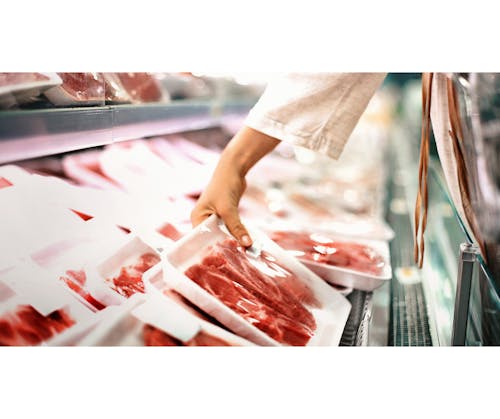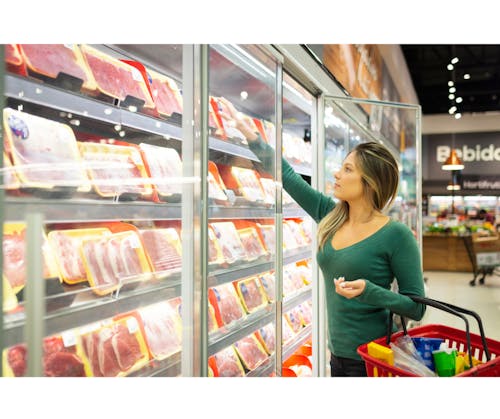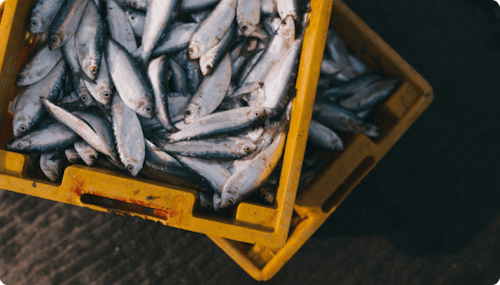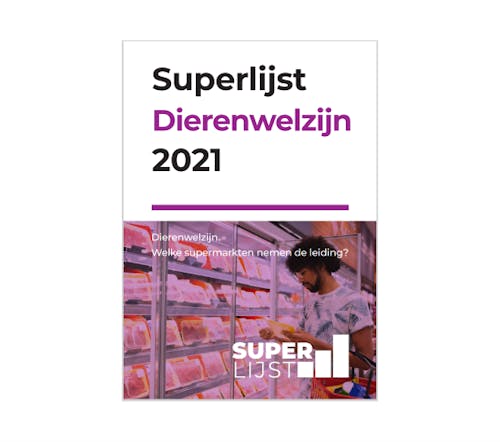Animal Welfare: responsibilty
Dec 14, 2021
A supermarket can ensure that animals in the livestock industry lead a better life, by selling (part of) their animal products with a relevant quality mark for animal welfare. However, due to the amount of meat, fish and dairy without that quality mark, many animals do not lead a respectable life yet.

What did we looked at?
First of all, we investigated whether the supermarket has objectives to reduce the sale of animal products without relevant quality mark for animal welfare. We also looked at if and how supermarkets are committed to improve the well-being of fish.
In addition to the reports and websites of the supermarkets, we also analyzed the assortments to determine to what extent supermarkets set a lower limit in the field of animal welfare.

Findings
All supermarkets with the exception of Ekoplaza, often place the responsibility for a more animal-friendly livestock farming with their customers. Supermarkets have started to take the first steps to take responsibility themselves by, for example, only offering BLK1 or BLK2 products. This happens with eggs, and with some meat products. Still, in some cases, there is no choice for products from more animal-friendly livestock farming.

Fish welfare
Only Ekoplaza has a respectful approach to both farmed and wild-caught fish. This supermarket is identifying risks throughout its chain and tests suppliers on the guidelines on sustainable fishing that are based on the identified risks.
Jumbo and Albert Heijn have taken first steps to improve fish welfare, through dialogue with quality marks authorities and by conducting research in the chain.

Read more
- More findings: reporting, less animal products, promotion.
- Here you can download a English summary of the report.
- Here you can download the full report (in Dutch only).
- Here you can read the press release about the publication.
- Here you can read the press release about the announcement of the research.





